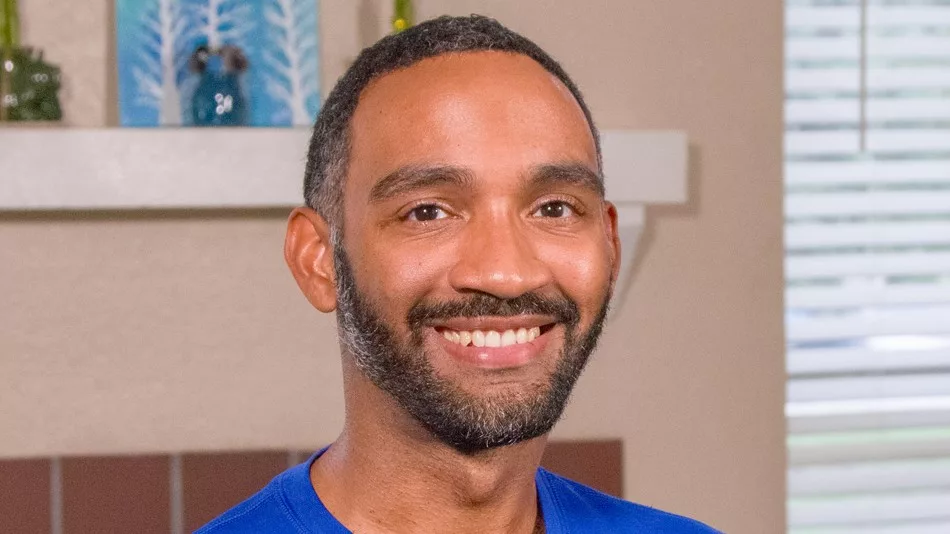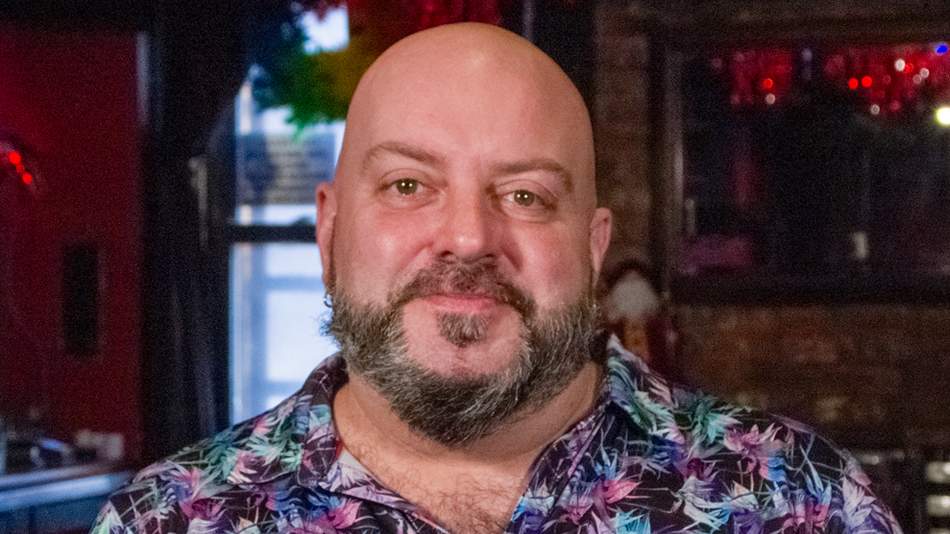I’m the Reverend John Russell Stanger and I’m from Brazoria, Texas. I grew up on my family’s cattle ranch outside Brazoria. One of things I remember doing when I was about 10 was putting on my own church service in our living room. Because I had grown up going to church, my parents were both Elders in our small presbyterian church and I loved it, I loved going to church, I felt at home there, there was something about everything we sort of did at church that spoke to me.
I had a music stand as a pulpit that I put in the center of our living room and I laid out on the coffee table bibles from around our house and some hymnal and I wrote out an order of service. So we started with a call to worship, and we sang hymns, and I asked my parents to read from scripture, and then I’m sure I preached to them as a 10-year-old and they were really great at humoring me. The one thing that sticks out to me as really gay was that I had bathrobes that I wore that were my clerical vestments and I would switch between a bathrobe that was me as the pastor and one that was me as the choir director. And my dad who’s this like 6’3” rancher, I remember him saying, “Why do you keep switching bathrobes?” And my mom said, “I think he’s supposed to be different people.”
But as I grew up, I grew up not knowing any out gay people at all. There were none in my life. And I clearly had this call to ministry. But I didn’t know as I started to figure out that I was probably gay, I didn’t know how to reconcile that. So I went all the way through high school and then through college, I got a BA in religion, and then ended up in Seminary still convincing myself somehow that I wasn’t gay even though I had been putting on gay church since I was 10.
And it wasn’t until being in Seminary in that first year and kind of learning that this religious tradition that I had been told doesn’t support gay people actually has all this beautiful tradition that does celebrate people who are on the margin, people who are different, and we follow this guy named Jesus who hung out with people that society rejected and that started to click for me. And I ended up coming out at the end of my first year.
And it was this really reconciling moment, but when I came out in Seminary, the Presbyterian Church USA which is my denomination would not ordain out gay people. So I decided that I would finish Seminary but I would not seek ordination because I didn’t want to subject myself to that. But then the second year, a year later, the Presbyterian Church voted to change the ruling and I immediately started seeking ordination and because of that, as of November 2013, I was the first out person in Texas to be ordained in the Presbyterian Church. I never questioned being religious. My religious identity is as important to me as my sexual identity. So the only way I could kind of keep going when I thought I couldn’t be gay and religious was to convince myself I wasn’t gay because I couldn’t convince myself I wasn’t Christian. And then in the end being Christian is what helped me be gay.
Because I didn’t know anyone gay growing up, I made a conscious decision to be publicly gay and to model that you could be gay and Christian and even gay or LGBT as a religious leader and that is something that is a good thing. So people knew I was being ordained and proud of being gay and that really annoys people who don’t understand why we’re proud to be gay.
When I realized the only form of sin isn’t having too much pride or turning your back on God but it was also to not believe in yourself and who God made you to be. That is what saved me and helped me come out was knowing that my own sin was repression and so for me to accept who I was was to be gay but also be a better Christian.
I think a lot of people believe there is one type of religious person because they’ve grown up with people who are religious and families who are religious and religious communities who are anti-LGBT so I hope those kids know that there are pastors and gay communities and churches who will embrace them fully as who they are and make it clear to them that Jesus loves them as an LGBT youth and young adult.








Share